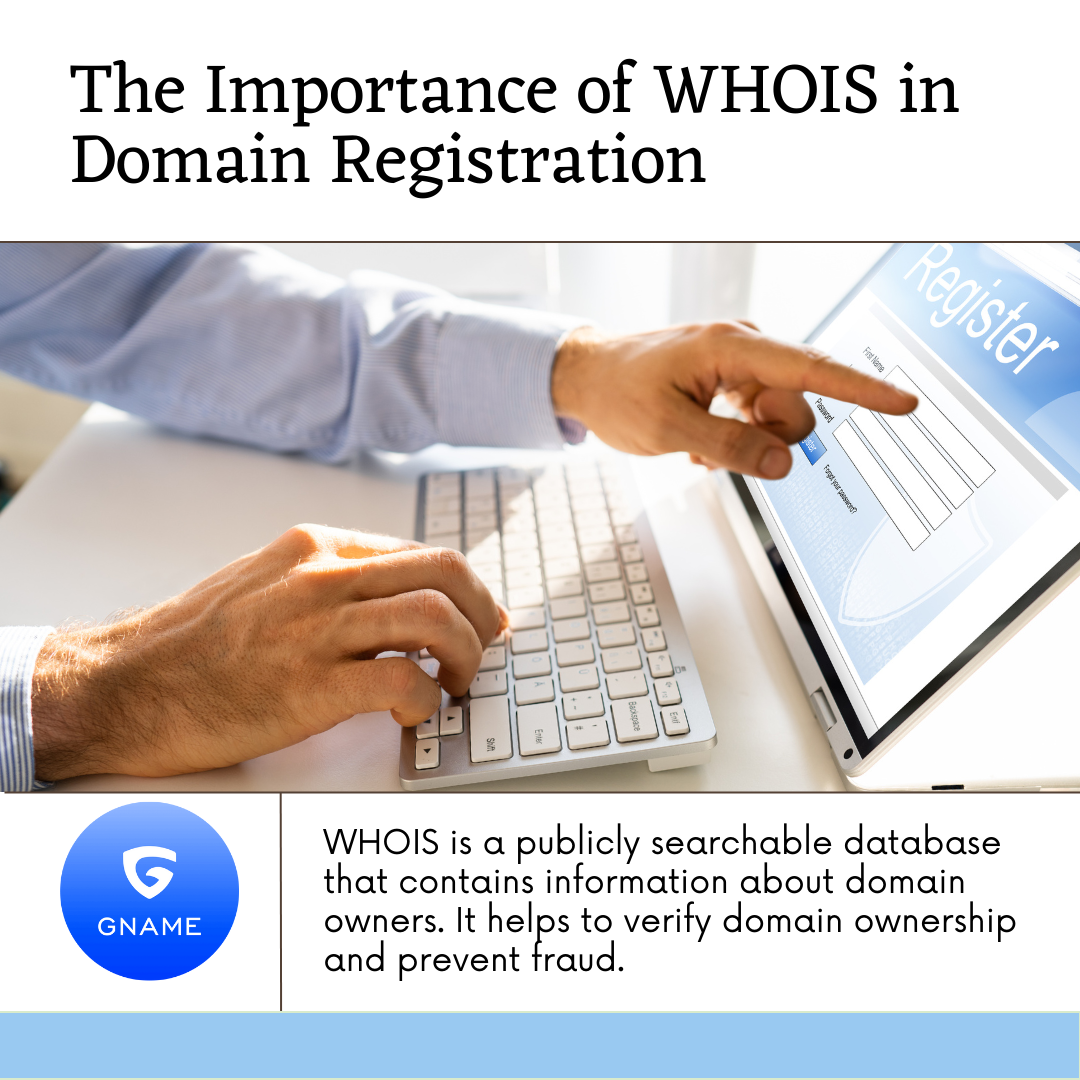Introduction
WHOIS, short for "Who is?", is a protocol used to query databases and extract information about domain names and internet protocol (IP) addresses. It serves as a fundamental component of the domain name registration and management architecture.

The Role of WHOIS in Domain Name Registration
When individuals or organizations register a domain name, they are required to provide personal information such as their name, physical address, email address, and telephone number. This information is then stored in the WHOIS database, which is accessible to the public. The primary purpose of this database is to promote transparency and accountability within the domain name system.
Maintaining the Integrity of the Internet Ecosystem
One of the key reasons why WHOIS plays a vital role in domain name registration is to uphold the integrity of the internet ecosystem. By ensuring that the WHOIS information is accurate and up-to-date, it facilitates the identification and resolution of issues such as domain name abuse, spamming, and copyright infringement. Additionally, it provides a mechanism for dispute resolution and enforcement of legal obligations.
Protecting Intellectual Property Rights
WHOIS also plays a crucial role in the protection of intellectual property rights. Trademark owners, for example, can monitor the WHOIS database to identify potential infringements or unauthorized use of their brand. This enables them to take timely and appropriate actions to safeguard their intellectual property.
Facilitating Domain Name Acquisitions
In addition to its role in security and brand protection, WHOIS is a valuable asset for businesses and individuals seeking to acquire domain names. Potential buyers can access the WHOIS database to gather critical information about the current owner of a domain, its expiration date, and contact details. This information can be instrumental in negotiating domain acquisitions and ensuring a seamless transfer of ownership.
Privacy Concerns and Challenges
However, with the growing importance of privacy and data protection, there are increasing concerns about the public accessibility of WHOIS information. To address these concerns, some domain registrars offer privacy protection services. These services substitute the registrant's personal information with generic contact details, thus protecting their identity from being publicly available. While privacy protection is beneficial for individuals, it can pose challenges in identifying and addressing malicious activities.
Conclusion
In conclusion, WHOIS is an integral tool in the domain name registration and management process. It provides a layer of transparency, accountability, and protection for both individuals and businesses involved in the digital landscape. By ensuring accurate and up-to-date WHOIS information, we can uphold the integrity of the online ecosystem and protect intellectual property rights. However, it is crucial to take into account privacy concerns and strike a balance between the need for privacy protection and transparency in the digital world.






















